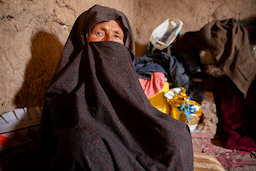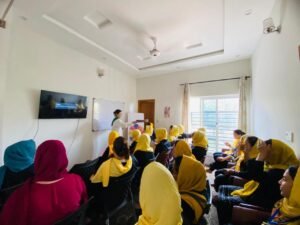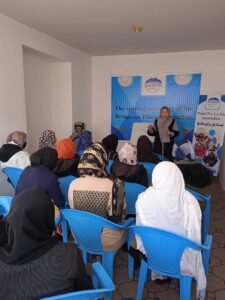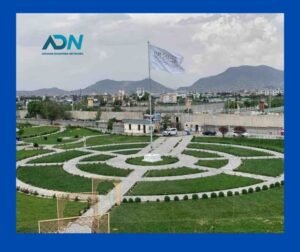Journey of Resistance: Women Under Taliban Rule
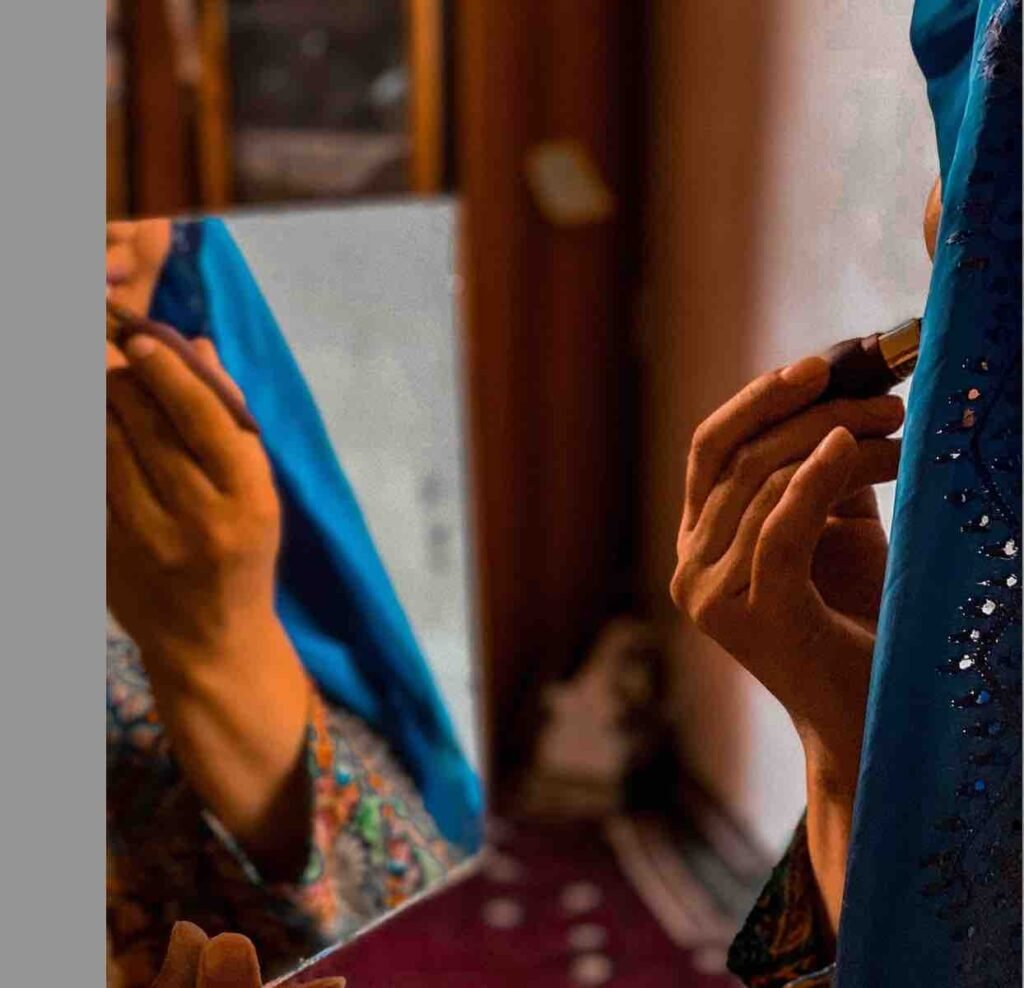
Photo by @Shekaba Haidary for ADN
By Mahnoor
I am ‘Mahnoor’, a citizen of Afghanistan, a region often overlooked on the world map, where people are denied even the most basic human rights.
With ambitious goals for the development of my homeland, I dedicated sixteen years to my education. I successfully graduated with top honours from a medical school in Balkh Province and subsequently served as the head of one of its faculties while working as a professional midwife. My mission was to contribute to society by helping to remedy the pain experienced by women, often silently laid to rest in a corner, who had lost their lives during childbirth due to inadequate health services and the absence of professional midwives.
The Taliban forbade women from working before prohibiting them from attending school, leaving thousands of women and girls in utter destitution. The day I was instructed to leave my office and not return marked a turning point. I was urged to remain calm, lower my voice, and confine myself indefinitely within the four walls of my home. That day, in front of my students, who had always exemplified courage, I broke down. Though tears welled in my eyes, I held back from crying to prevent further concern among the frightened girls before me. Nevertheless, my heart cried and worried for those who were determined to pursue their goals, breaking numerous taboos and adhering to extreme and mandatory hijab. As I left my office, I penned a small note: ‘We will come back stronger soon, and we will answer this humiliation’.
Were my goals harmful to the survival of this cursed land?
Two years have elapsed since that fateful day, and the note I left on my desk remains untouched. It carries a sense of despair, and I am no longer permitted to enter that office. Following that incident, I grappled with mental health issues, despair, destitution and economic hardships, all of which hit me hard. I used to be the one resolving issues for the students in that faculty, but now I find myself without answers to their questions. Whenever they enquire about the reopening of universities, all I can muster is a sense of resentment and a regretful sigh. Although I express hope for them deep down, I struggle to believe my own words. I am weary of lamenting the plight of girls whose only fault is being women. It pains me to witness their distress.
After enduring numerous challenges and a painful year of waiting, I endeavored to redirect my efforts. To provide financial assistance to my family and escape the clutches of depression, I pursued and secured a position in a foreign nongovernmental organization operating in western Afghanistan, specifically in Herat Province. Little did I know that the most challenging phase of my life was about to unfold.
My joy at securing a new job was short-lived when I encountered the absurd rules of Amr Bamaruf (The Propagation of Virtue and Prevention of Vice). According to one of these rules, a mahram (male chaperone) is required to accompany me on journeys as short as 100 metres, and I am forbidden from engaging in any conversation with my male colleagues. Additionally, my hijab must conform to a strict standard, and I am not permitted to use office-provided transportation unless accompanied by a mahram. These regulations aim to portray women as weak, subject them to humiliation, and diminish their social standing. One aspect of my job that troubles me, especially, is the occasional abrupt closure of our workplace gates without any prior notice, which forces us to return home in utter disappointment. The cumulative negative impacts of these instances have taken a toll on my mental well-being. Another thing that saddens me is the discrimination perpetuated by men in society, including by my male coworkers. It seems that we are discriminated against not only by the Taliban, but also by the rest of society, who hold similar views. That the men around view women in the same light as the Taliban creates an unsettling atmosphere.
Fighting for My Daughter
I have committed to myself that I will not give up. God made me a free person, and for as long as I live, I will work to respond to these assault on women’s freedom and dignity, but I remain highly concerned about my little girl’s future. I must keep going for her sake so that by the time she enters the sixth grade, she will not face barriers to further education. It is difficult to convey to her the terrible reality of being shunned, stigmatized, and imprisoned.
Despite my best attempts, I am not always successful at protecting her from a male- and Taliban-dominated society. Her innocent eyes are full of inquiries, and her little mind has already begun to compare her existence to the lifestyle of the boys around her. I do not know how to respond to all these questions. She does not realise that her only ‘crime’ is that she is a girl; if given the chance, she would surely choose to remain a girl because being a girl requires courage.
I will not forget the day my daughter was visibly disturbed, sitting in the corner of the room and staring at me through her brown eyes. The grief in her soul was visible in her innocent eyes as she asked quietly, ‘Mom, why can I not become a doctor like you? Why doesn’t Kaka Talib like me?’ (Kaka means uncle, but here is used to refer to an elder with respect.)
I knelt beside her, gently stroking her tiny hands between my fingers, and whispered, ‘You are unique, my love, like a beautiful flower in a vast garden – beautiful, powerful and different! Who said you can’t be a doctor?’
She hesitated, looking at the ground, and said, ‘Then why is Omid [her male cousin] saying that in two years Uncle Talib will not let me and other girls in her class go to school? If we do not go to school, how can I become a doctor? How can I give medicine to patients like you? How can I help people?’
She sobbed with every word, and I failed many times to respond to her questions. I heard the sound of her heart beating amid her cries, but as her role model, I could not afford to show weakness. Lifting her chin, I gazed into her innocent piercing eyes and firmly stated that this difficult situation would pass. I assured her that the sun would rise again in our land, she would graduate from school alongside her friends, and I would be with her every step of the way. I promised to fight for her beautiful dreams, and on her graduation day, we would dance and celebrate together. She smiled, finding comfort in my words, and happily relaxed into my arms. That day, I made a silent promise between us, a commitment that I would do whatever it took to fulfil.
I refrained from explaining why the Taliban does not like her and others like her. I did not want her compassionate heart to be tainted with hatred that festered into self-loathing. It baffles me that erroneous social and religious norms – originating in the distorted and oppressive thinking of backward men devoid of logic and humanity – have consistently influenced women’s lives in this country.
Resilient Voices: Embracing Change without Surrender
Slowly, a Taliban mentality is emerging in the men of this country due to the misogynistic laws of this group, which has led to women being imprisoned by their own fathers, brothers and husbands. Simultaneously, the Taliban has transformed the largest women’s rights advocacy organisation into the greatest source of women’s oppression. The Ministry of Women’s Affairs became the Ministry of the Propagation of Virtue and the Prevention of Vice, sentencing women to house arrest by their medieval policies. The girls of this land are denied the slightest right to have a say in their own lives. At home, they face oppression from their fathers, brothers and husbands, while outside, they face the agents of Amr Bamaruf with harassment, surveillance, cruelty, and persecution.
Many times, these agents have compelled taxi drivers to refuse to serve women. Merchants are coerced into not forbidding women unaccompanied by a mahram to enter their shops. A woman who receives permission to work outside after passing many hurdles must still have a man with her during travel to and from workplace. But this is not the end of the road: we will one day sprout again because every time we have been uprooted, we grow bravely through the stones and continue to flourish. We persist here, striving to break the chains so that one day we can again witness the freedom of our land. We fight for our well-being; being strong in our world is not a choice but a compulsion. No matter how dire the situation is, we may become injured or fall down, but we will not fail!
I deeply believe that we are not created to feel regret; we are created as free human beings, and we will not stand down until we secure this right. We challenge the world to align with our aspirations, and we believe that our girls will once again attend school and soar. The conditions for women are changing, and we will gather again, talk together, laugh together, live together and play our part in the development of our homeland.
This article was initially published by the VIDC website.
Mahnoor (pseudonym) graduated from a medical university in northern Balkh province and then worked as the head of one of its faculties while also working as a professional midwife. Today, she works for an NGO in Herat province.
Note: The contents of the article are of sole responsibility of the author. Afghan Diaspora Network will not be responsible for any inaccurate or incorrect statement in the articles.


